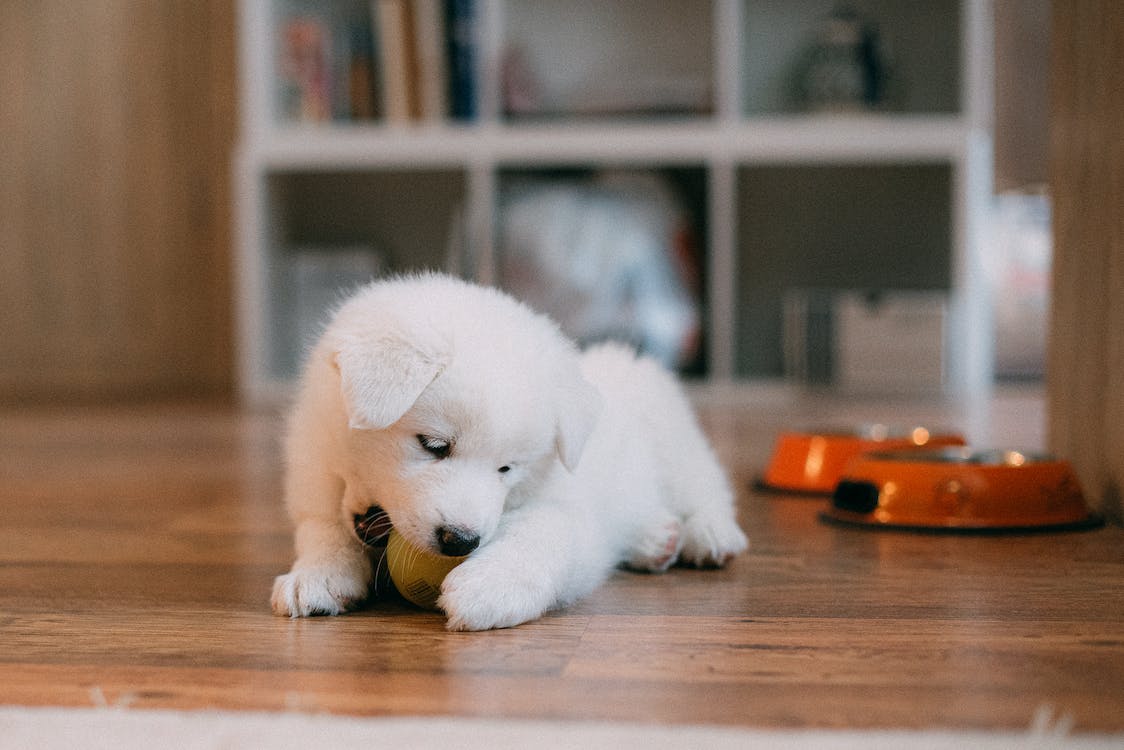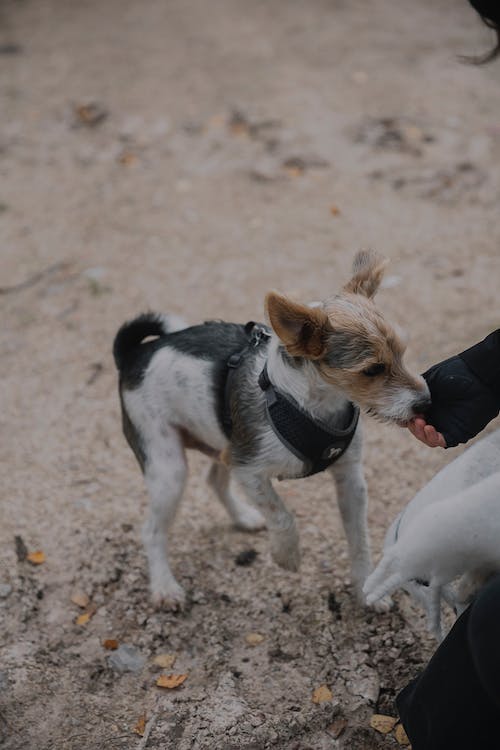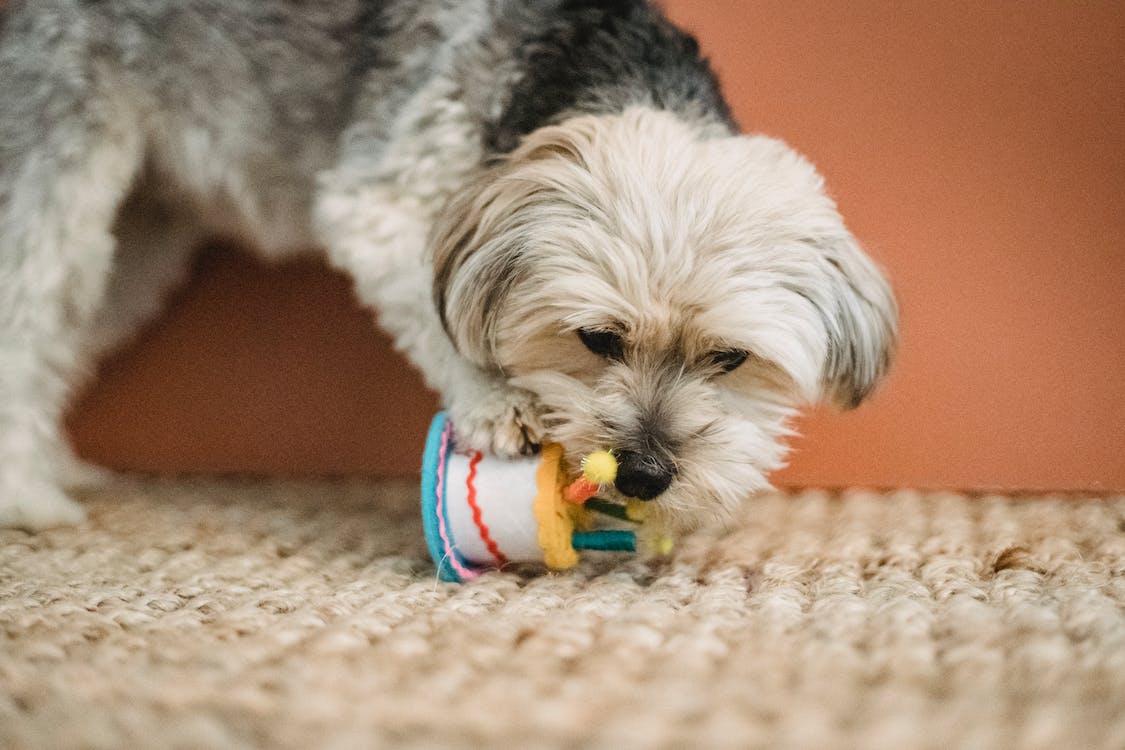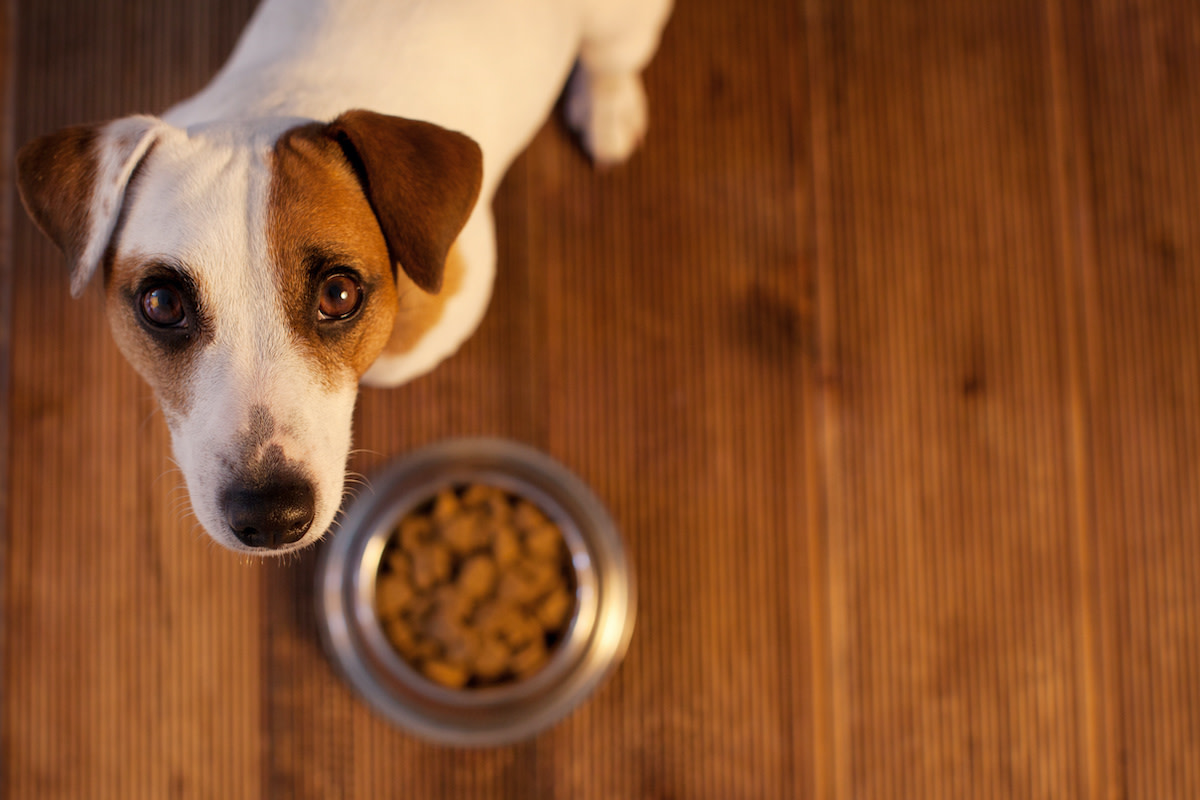You adore your new rambunctious pup, but the constant humping and nipping of hands and ankles wears thin. While frustrating, these behaviors arise from normal developmental phases for young dogs. With patience and training, you can curtail the mounting and mouthing directed your way.
Common Causes of Puppy Humping
Several motivations explain puppy humping behaviors:
Exploration – Puppies investigate their world through touch, taste, and smell. Humping allows them to examine environments. It’s purely about gathering input versus a sexual display at this age.
Exuberance – High energy pups overflow with excitement. Humping releases their exuberance. It’s self-rewarding but not meant aggressively toward you.
Attention-seeking – Pups hump to gain your attentive reaction. Even negative attention rewards the behavior. Setting an indifferent tone when puppies hump teaches more appropriate ways to engage you.
Anxiety – Some anxious or nervous pups mount objects or people to feel more in control. Curbing the underlying anxiety helps reduce need for comfort humping.
Natural Instincts – Early mounting mimics adult breeding behaviors they’re pre-wired for. But mating intentions don’t emerge until much later in maturity.
With patience, tolerance decreases excessive humping as puppies outgrow investigative puppy phases. Proper socialization focuses energy into constructive outlets.

Smart Strategies for Curbing Puppy Humping
While rarely sexual in young puppies, mounting should still be redirected using these tactics:
Interrupt and redirect – Tactfully interrupt with a calm verbal cue like “off” then immediately engage your puppy in a positive game to refocus their energy.
Withdraw attention – Completely ignore your puppy during and after humping incidents to teach it earns no rewarding attention. Attention fuels the fire.
Avoid punishment – Hitting, kneeing, or shouting teaches fear-based responses. Pups don’t understand these scare tactics. Kindly interrupting and distracting works best.
Exercise regularly – A tired puppy humps less. Ensure your pup gets sufficient active playtime and enrichment. Mental exercise is just as tiring.
Socialize early and often – Introduce your puppy to other friendly adult dogs to learn acceptable social behavior and communication skills.
Consider confinement – Briefly place your over-aroused pup in their crate or pen to calm down when humping gets out of hand.
Enroll in a training class – Progressive reinforcement classes strengthen human-dog bonding and productive behaviors.
Consistency, positive alternatives, and maturity eventually resolve most humping provided it’s not rooted in deep anxiety.

Why Puppies Nip and Bite Their Owners
Mouthing and play-biting during puppyhood serve many purposes:
Teething – Sore gums from emerging teeth prompt chewing and gnawing for relief. Hands and ankles often become unintentional targets.
Curiosity – Puppies explore unknown objects like human extremities through smelling, licking, and tentative nibbling. Learning feels good.
Attention-seeking – Pups quickly associate nips with human interaction and petting. Negative attention still satisfies their social needs.
Instincts – Sharpening biting skills through play strengthens their predatory abilities. Inhibitions develop later.
Communication – Careful inhibited mouthing expresses friendliness and deference in early canine socialization.
Overexcitement – Excess energy and poor impulse control incite wild unruly play with human hands and feet.
While ought, this roughhousing requires redirection to promote polite manners as they mature.

Redirecting Puppy Biting and Nipping
Transform biting from bad to positive behavior using these strategies:
Say “ouch!” – Give immediate feedback that nibbles hurt. Say it firmly but avoid yelling.
Withdraw attention – Stand up and cease play for 15-30 seconds when puppy mouths to demonstrate that biting ends fun.
Try taste deterrents – Spray bitter apple or lemon juice on areas prone to chewing if verbal cues are ineffective.
Provide chew toys – Direct your puppy’s need to gnaw onto more appropriate rubber teething toys. Praisegentle chewing.
Avoid physical punishment – Hitting, shoving fingers down their throat, or scruff shaking leads to hand-shyness and teaches fear of hands near their mouth.
Enroll in training classes – Skilled positive reinforcement trainers offer invaluable biting inhibition guidance. Practice at home. Socialization prevents inappropriate play.
Avoid roughhousing – Reduce wild hand play that excites uncontrolled mouthing. Settle before petting.
Consistency transforms the message that human flesh isn’t for biting into learned understanding. Most pups outgrow overzealous nibbling and channel the need to chew into safer activities.
Conclusion
Don’t despair over your puppy’s mounting and mouthing habits. Humping and nipping are normal developmental phases, not intentional disobedience. Redirecting energy into positive outlets, withdrawing attention for bad behaviors, patiently teaching acceptable manners, and waiting for maturity resolves most puppy antics. Consistency transforms her into the polite companion she’s meant to become!


